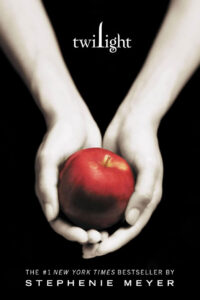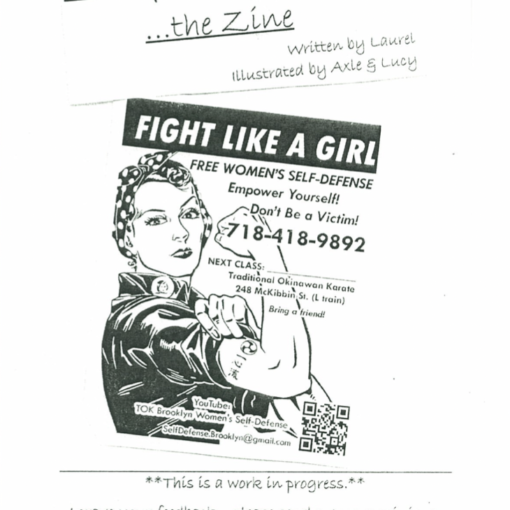 No one can deny the lasting social impact Twilight has had on society. Stephanie Meyer’s series reawakened and reshaped the paranormal romance genre that has been capturing the hearts of teenage girls and middle-aged women for decades. The series also debuted a new popular trend in movie series, where lengthy novels were split apart and debuted as separate movies for their finale. This trend worked both to increase runtime for profit margins, but also to give more room to tell the story, and when done right it empowered a book series even further in the eyes of movie-goers.
No one can deny the lasting social impact Twilight has had on society. Stephanie Meyer’s series reawakened and reshaped the paranormal romance genre that has been capturing the hearts of teenage girls and middle-aged women for decades. The series also debuted a new popular trend in movie series, where lengthy novels were split apart and debuted as separate movies for their finale. This trend worked both to increase runtime for profit margins, but also to give more room to tell the story, and when done right it empowered a book series even further in the eyes of movie-goers.
But we’re here to talk about the book series in particular. While I could give a lengthy recap of the Twilight saga, I won’t insult your intelligence or time with that, as you would have to have been under a rock to avoid the cultural storm that surrounded this book series. Whether you were Team Edward or Team Jacob, you knew the faces of the hunky love interests and main character Bella Swan. Once again a woman re-shaped the face of a significant science-fiction stereotype, echoing what critics consider the ‘first’ vampire in the 1872 Gothic novella Carmilla by Irish author Sheridan Le Fanu. This novel predated Dracula by twenty-five years and centered around a female in an extremely sapphic relationship; one might think this is why it wasn’t popular, but unfortunately, Le Fanu just didn’t have the same writing talent as Stoker.
Reading Twilight in 2024 is . . . interesting. It’s not particularly horribly written, but personally, I cannot stand Meyer’s emphasis on sex before marriage being a horrible thing, and Bella attempting to explore her sexuality in the slightest being shut down by everyone around her. This literary trope is pushed to such an extreme that her having sex with either the vampiric Edward or the werewolf Jacob could physically kill her is such a cringe-worthy choice and it isn’t a surprise that it comes from a strictly Mormon author like Meyer.
The problems continue with the lack of diversity in the cast, while I understand that identifying race among characters is a hot topic among young adult authors, where it is beneficial to leave them vague unless they benefit the story, Meyer writes of Leah, a Quileute Native American, as an “exotic beauty” and further only writes of one Black man, Laurent, who is an antagonist who tries to murder Bella as a favor to his fellow vampire. Aside from the Quileute tribe (more on them later), Meyer brings a very plain toast cast to Twilight, with even the vampiric “royalty” being Italian in origins. Her other microaggressions include referring to Amazon vampires as “wild” among other vampires, and having a member of the main Cullen family be a former Confederate general!
Let me reiterate my issues with Jasper, the former Confederate general. A tragic heartthrob for many readers, he was not only fighting for Texas in the Civil War, he rose to the rank of general, and is proud of that distinction years later as a vampire, showing absolutely no shame and it has no significance to the story in the slightest aside from painting Jasper as a “sympathetic” character as he is pulled from one war into another. Meyer . . . come on. He could have been from literally any other war in U.S. history, we even find out that Jasper has a friend Garrett who fought in the Revolutionary War!
Racism against the Black community aside, we have to speak about the elephant in the room. The Quiluete tribe and the blatant manipulation of their very real and very culturally significant legends for a fantasy story, but also the fact that the tribe never saw any benefit of the profit of the Twilight saga, or the fact that they only cast one Native American man to play a Native American in the movie. (To read more about this issue, check out Burke Mueseum’s fantastic articles that inspired me to write this reflection: “Cultural Theft in Twilight” and “The Truth Versus Twilight.”)
The problematic nature of this is akin to J.K Rowling’s war against the transgender community, and as such many of us are torn between nostalgia for a beloved series from our childhoods and disgust for the opinions of ultra-conservative views that aim to profit and oppress off marginalized communities, so what are we to do?
Well, this author says that you’re allowed to still enjoy them. As for me, I still love the feminist icon that is Rosalie in the third book, where she murders the men who took advantage of her in her own wedding dress looking like an avenging angel! I adore that Emmett is a cuddle-bug despite the intimidating presence and his penchant to wrestle bears. I love the struggle to avoid human blood that each vampire struggles with, and how humble the saint-like Carlisle is. I wish that Bella’s relationship with Charlie was explored more, it reminds me so much of my own relationship with my father where you care so much but you don’t really talk. I loved the final battle that was Avengers: Endgame before Endgame was even written! The movies are hilarious and a fun watch with friends, and it shaped such an important part of my life that they’ll always be close to my heart.
Get the book! Check out Twilight by Stephanie Meyer at BMCC’s Library, the New York Public Library, the Brooklyn Public Library, or the Queens Public Library.
About the author The author prides themself on honoring the effort of the many amazing authors who came before them. They write, “I believe that these words should support the authors they speak about on their own.”
 This work is licensed under a Creative Commons Attribution 4.0 International License.
This work is licensed under a Creative Commons Attribution 4.0 International License.




